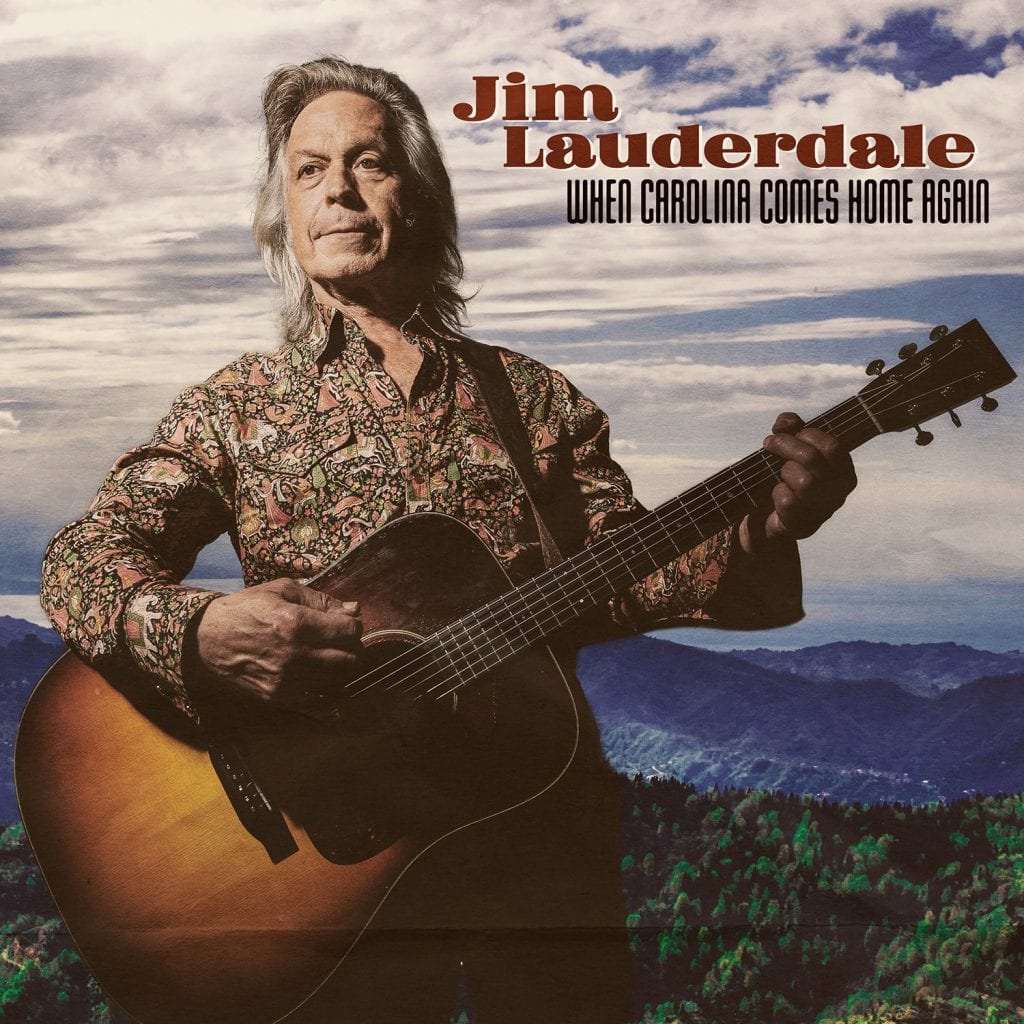Jim Lauderdale Taps Home State Talent for ‘When Carolina Comes Home Again’

When Carolina Comes Home Again is Jim Lauderdale’s 33rd album, so it’s safe to say he knows what he’s doing. Not only does Carolina showcase Lauderdale’s prowess, it also proves his ability to pick out just the right people for the job. The album features songs co-written with John Oates, Charles R. Humphrey III, Si Kahn, Graham Sharp, Logan Ledger, Sara Douga, and Robert Hunter.
The album was recorded at Echo Mountain Recording in Asheville, North Carolina, the seasoned road warrior’s home state. Lauderdale collaborated with some of the finest North Carolina-based bluegrass acts: Balsam Range; Cane Mill Road; Hank, Pattie & the Current; Jon Stickley Trio; Songs from the Road Band; Steep Canyon Rangers, and Town Mountain; as well as Marc Pruett (banjo); Pattie Hopkins Kinlaw (fiddle); Aaron Ramsey (mandolin); and Nick Dauphinais and Presley Barker on guitars.
Across his 33 albums, Lauderdale has played among every roots subgenre you can think of and then some. With Carolina, he preserves the traditions of his own state while making them sound as shiny as a new penny. The album is replete with tales of heartbreak, loneliness, and backwoods life, yet nothing ever sounds cliché, thanks to Lauderdale’s witty yet gentle songwriting.
On “The Last to Know,” the narrator attempts to stave off the inevitable. While there’s plenty of country songs centered on the same phrase, Lauderdale uses his three verses, chorus, and bridge to examine the platitude from every last angle.
Meanwhile, “Misery’s Embrace” is genetically engineered for a tear in your beer at your favorite honky-tonk circa 1955. Of course, that doesn’t mean the beer’s gotten skunked. Lauderdale’s crack team delivers gorgeous harmonies and soulful solos to underscore the shared loneliness of having your heart dumped all over the floor.
The album’s closer, “Better Than You Found It,” toys with tradition, adding a slick drum beat and rock groove to the bluegrass instrumentation. The song’s theme won’t surprise you from the title, but Lauderdale’s musical choices suggest that the path to leaving things better is to innovate while leaving the foundations of tradition in place.
Overall, When Carolina Comes Home Again won’t surprise you with sharply political songwriting or acerbic wit. Instead, you’ll be surprised that there’s always new wisdom to uncover when you go back to basics — and you’ll be better for it.




